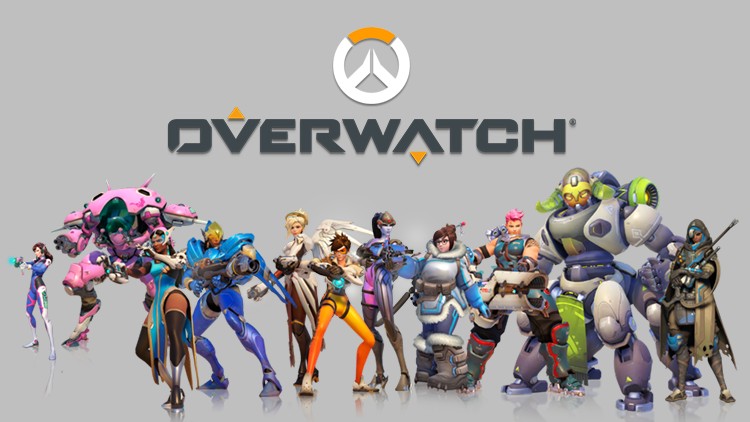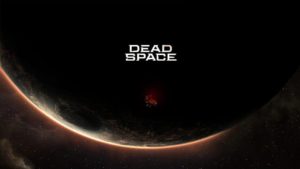
Have you ever been in a situation where the gaming media, the internet, and even your friends are raving about a certain title that has critical acclaim that you just don’t understand the hype for? I Just Don’t Get It?! is GameRVW’s new series where our writers name the games that they felt don’t quite deserve to be placed on the pedestals they currently sit on. In this edition, Staff Writer Peter Sallale tells us why he’s at odds with Blizzard’s Overwatch.
We all have that one opinion that seems to be at odds with the collective opinion of gamers at large. No matter how much you try to enjoy a title, there’s just something that doesn’t click for you, despite the zeitgeist hammering you over the head with the fact that you should be enjoying it. For me, that title is Overwatch. Blizzard’s 2016 smash hit is perhaps the defining title of the hero shooter genre, and its popularity reflects its reputation. But for me, it just didn’t work.
For those unfamiliar, Overwatch is a first-person shooter featuring a colorful cast of characters, such as the time-traveling Tracer or the lightning cannon-wielding gorilla Winston. Players select characters based on team and map needs and do battle in a variety of scenarios – in some cases, attacking teams need to push a payload to the end of the map to win the game, or capture a point while defenders try to stop them. The gameplay is simple and admittedly very approachable – but the more you play the game, the more its flaws become apparent.
Like other games in its genre, Overwatch is a team-based game. Your personal success is, of course, intrinsically tied to the success of your team. Makes sense, right? Where Overwatch falters, however, is the extent to which team-based success is emphasized. Creating an enjoyable multiplayer experience is a balancing act, literally and figuratively, and unfortunately, Blizzard turned the dial up a bit too high when trying to build a game where teamwork is king.
In any typical multiplayer game, players contribute to their team’s success by playing well and helping their allies achieve objectives, creating a feedback loop – when you help your team achieve superiority in a match, you benefit as well. However, it is also possible to do well even if your team is not winning a match – teammates in most games won’t drag down your personal performance too much, allowing you to still have an enjoyable experience even if your team is failing to capitalize on the openings you are providing. This is true in competitive shooters of all types, such as Call of Duty and Halo, as well as other hero shooters like Apex Legends. Not so in Overwatch – the game is a little too good at emphasizing the importance of teamwork, and the title as a whole suffers for it. Particularly in the case of those who most frequent the solo queue.
Overwatch was designed with the objective of preventing players from succeeding if they don’t work as a team. While a well-intentioned philosophy, it is one that can be quite at odds with the nature of online multiplayer gaming. Relying on strangers to pick the right hero that will round out your team’s composition is an exercise in frustration – people want to do their own thing, and have fun on their own terms, which most games accommodate quite well. Overwatch’s core design is anathema to this attitude – you cannot just kick your feet up after a long day of work and expect to have a relaxing few matches playing as Tracer. Instead, your enjoyment comes from how well you acquiesce to your team’s needs, and how well your teammates do the same. If you’re not that great of a tank, but the last hero your team needs in its lineup is one? You’re out of luck, you can either play a character you’re not familiar with and likely drag down your team’s performance or select one of your comfort picks and play well enough – but good luck taking objectives with that tank slot unfulfilled. Trying to salvage a poor showing by your team is equally difficult – unlike a typical Call of Duty match, you won’t be going on any respectable killstreaks or stealth capturing objective points by your lonesome if your allies are underperforming.
Overwatch makes you stress over every decision you make and treats teamwork as the ultimate decider of defeat or victory. Online multiplayer certainly has a place for this philosophy, but usually, you’d see it embraced in more obscure or “hardcore” games, not in a title marketed for mass-appeal like Overwatch is. And herein lies the encapsulation of the title’s problem: Overwatch is a competitive game disguised as a casual one. While some of these problems, such as the issues stemming from suboptimal team compositions, can be alleviated by playing with friends, there are still many frustrating mechanics that will negatively impact your experience no matter how casually you try to play the game.
Other issues further hamper my efforts to enjoy Overwatch. Blizzard’s balancing philosophy can be summarized as nonexistent, with many changes being baffling, and indicative of the fact that the developers just don’t know how they want some of their characters to be played, such as Mercy, who has undergone a wide variety of reworks to her skills that radically changed her playstyle each time. The world and lore surrounding the game were additionally quite intriguing early on, but four years into the game’s life and the story has been undercooked and inconsistent – the most interesting plot development came not from one of the game’s lackluster lore events or webcomics, but from the cinematic trailer for Overwatch 2.
Overwatch set out to be a game that, on the surface, would appeal to everybody – but once you look beyond the wacky characters and the optimistic tone, it becomes apparent that the title’s gameplay is completely detached from this philosophy. Players looking for a good alternative should try out titles like Rainbow Six: Siege or Apex Legends, similar “hero-based” games that are much friendlier to solo players. Overwatch is what would happen if someone wanted to make a game based on the experience of doing a college group project – it is just too good at emphasizing the importance of teamwork, and this results in an unenjoyable experience.




